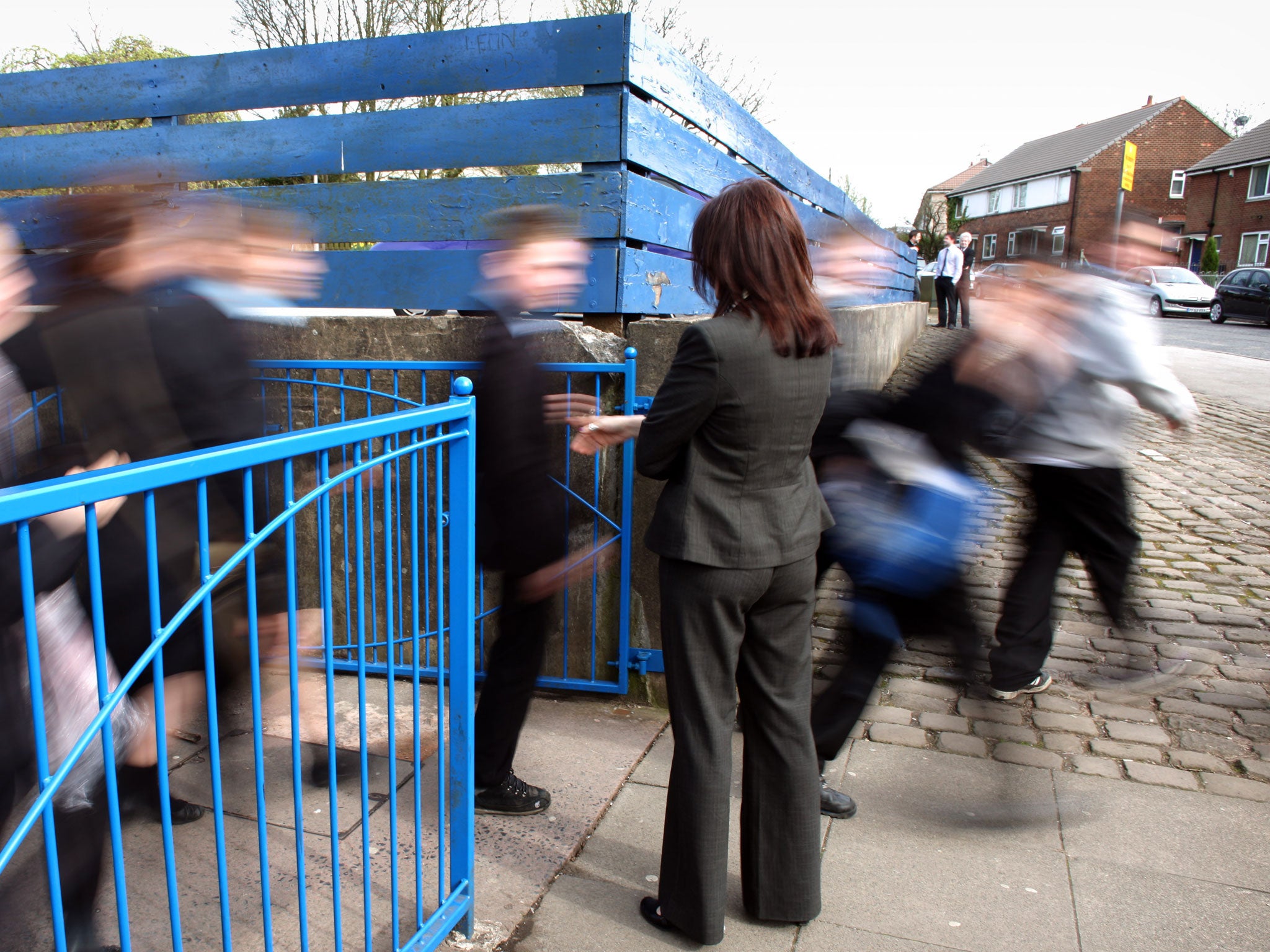Teachers blame poor parenting for increased chaos in the classrooms
Teachers tell of a sharp rise in disruptive behaviour – including attacks – by pupils

Your support helps us to tell the story
From reproductive rights to climate change to Big Tech, The Independent is on the ground when the story is developing. Whether it's investigating the financials of Elon Musk's pro-Trump PAC or producing our latest documentary, 'The A Word', which shines a light on the American women fighting for reproductive rights, we know how important it is to parse out the facts from the messaging.
At such a critical moment in US history, we need reporters on the ground. Your donation allows us to keep sending journalists to speak to both sides of the story.
The Independent is trusted by Americans across the entire political spectrum. And unlike many other quality news outlets, we choose not to lock Americans out of our reporting and analysis with paywalls. We believe quality journalism should be available to everyone, paid for by those who can afford it.
Your support makes all the difference.Parents are to blame for a rising tide of disruptive behaviour in schools because they fail to lay down the law at home, according to a new survey out today.
The survey of more than 800 teachers by the Association of Teachers and Lecturers revealed a rise in the number of pupils with emotional, behavioural or mental health issues over the past five years – which had led to deteriorating standards of discipline in schools and colleges.
Nearly four out of five teachers (79 per cent) who responded pinned the blame on a lack of boundaries being placed on pupils while at home.
One teacher in a primary academy in Kent said she had been faced with "the most challenging reception pupil I have encountered in 20 years of teaching".
"He did not comply with a single instruction – even to sit on a mat for a story," she added. "His mum would not accept that his behaviour was different to the other children's."
Mary Bousted, general secretary of the ATL, said: "Teachers and support staff are suffering a backlash from deteriorating standards of behaviour. They are frequently on the receiving end of children's frustration and unhappiness and have to deal with the fallout from parents failing to set boundaries and family breakdowns."
Delegates to the ATL conference, which opens in Liverpool tomorrow, will draw attention to a health and safety report that referred to a "continuing trend of intentional injury through challenging behaviour".
Of the 844 staff answering the survey, 62 per cent thought the number of children with emotional, behavioural and mental health issues had grown in the past two years – and 56 per cent said it was worse than five years ago.
Nine out of 10 staff said they had to deal with at least one case of a challenging or disruptive pupil during the past year – 40 had been physically hurt as a result of an attack, 67 had visited the doctor and 38 needed to take time off work.
A teacher at a Cheshire primary school said: "I have been kicked in the head, spat at, called disgusting names, told to fuck off, had the classroom trashed regularly and items thrown around. We accept children who are excluded from other schools, so they come to us with extreme behaviour issues."
Teachers also talked of being "cyber-bullied" by their pupils with one male secondary teacher from Staffordshire saying: "Pupils created a pornographic Photoshop image of me."
Another said a colleague had had a Twitter account set up about him called "Paedo ******" [the man's name] which invited others to comment on him and his sexual orientation.
A secondary school teacher in Rhondda Cynon Taf in Wales said: "I'm extremely concerned by the increase in mental health issues such as depression and self-harm. I'm alarmed by the lack of expert support made available for adolescents."
Dr Bousted added: "The huge funding cuts to local services mean schools often have to deal with children's problems without any help.
"Schools need to give their staff regular training so they know how to work with students with behavioural and mental health issues and have confidence in tackling pupils with challenging behaviour."
Tomorrow's conference will kick off two weeks of teaching union conferences where the spotlight will be on strike action over pay and pension curbs and cuts to education funding. The two bigger unions, the National Union of Teachers and National Association of Schoolmasters Union of Women Teachers, start their conferences on Good Friday.
Both are expected to endorse their unions' declaration of a rolling programme of strike action – starting with regional strikes in June and building up to a one-day national stoppage before Christmas.
Join our commenting forum
Join thought-provoking conversations, follow other Independent readers and see their replies
0Comments